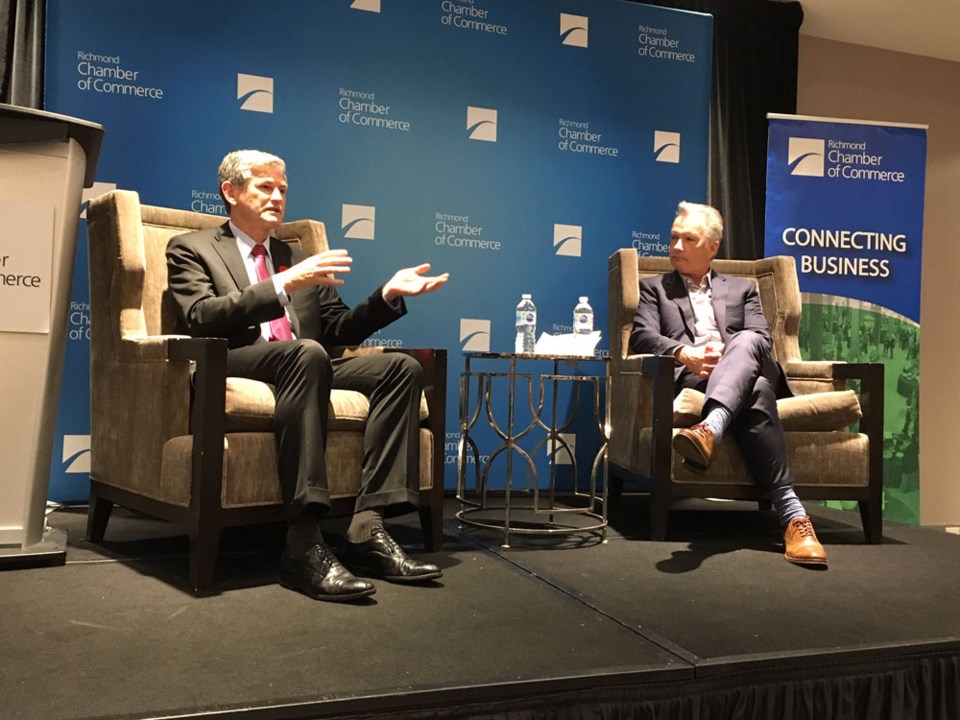Andrew Wilkinson, the leader of the B.C. Liberal Party, says he is “gravely concerned” with the possible poor turnout for B.C.’s electoral reform referendum, at a Friday event held by the Richmond Chamber of Commerce.
Twelve hours after appearing on the televised BC Electoral Reform debate, Wilkinson turned up at the breakfast event, which was also attended by MLAs John Yap, Teresa Wat, Jas Johal and Linda Reid, and councillors Linda McPhail, Chak Au and Alexa Loo.
“The turnout as of Nov. 8, which is 17 days into the referendum, is 2.7 per cent. And all of us say, OMG, I hope the turnout is better than that,” said Wilkinson.
“So I think all of us, for the sake of our democracy, have our fingers crossed that we get a good turnout on this (referendum). Because the last thing any of us want is a 15 per cent turnout, which is a reasonable projection from where we are now.”
When Wilkinson was asked by mediator Kirk LaPointe, editor in chief for Business in Vancouver, what Wilkinson believes is a legitimate turnout, he said 40 per cent.
“I don’t care what your position is on referendum...the most essential part of democracy is to express your democratic will,” said Wilkinson.
“We ask that everybody take the ballot to your workplace, to Tim Hortons, to the Chamber of Commerce, and wave it around saying, ‘please vote.’”
The BC Liberal Party has been advocating their position against the proposed proportional representation system and their support for the current first-past-the-post status quo, since the referendum was called.
Wilkinson restated this stance at the Chamber event. He criticized the referendum being called simply because “the NDP decided to keep the Green party happy” and called the ballot “the most confusing, complicated ballot anybody ever seen.”
He also criticized that there is a lack of consultation on the referendum, which is below many people’s radar.
“Look at Richmond. It works. This place is a well-managed, prosperous,and people have great expectations for the future,” said Wilkinson.
“People come here because of the stability of many things, including the government. If it’s working well then you have to ask, why do you want to change it without a really really cautionary process?”



